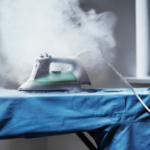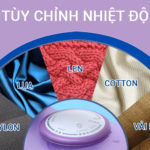The condition of your bedding, including your comforter, sheets, pillows, and mattress, can directly impact the quality of your sleep and your overall health. Today, we’ll share some tips on how to deal with pilling on your bedding – simple and effective solutions that work quickly!
1. Causes of Pilling on Bedding
Weaving Style and Fabric Material
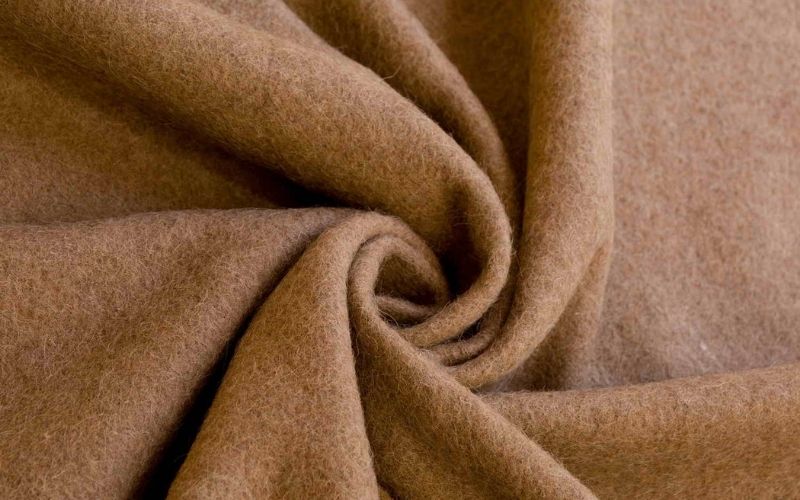 The weaving style and fabric material can contribute to pilling on bedding.
The weaving style and fabric material can contribute to pilling on bedding.
Generally, pilling can occur on most fabric types, but fabrics woven from short fibers, such as cotton, wool, or synthetic fibers like polyester and acrylic, tend to pill more easily than natural fibers like linen or silk. Additionally, loosely woven fabrics, such as knit fabrics, are more prone to pilling than tightly woven fabrics like denim.
Moreover, since silk fibers are typically longer and stronger than cotton, when cotton fibers break, they can wrap around the silk fibers and form small balls of fluff, leading to pilling, especially in blended fabrics that combine silk with cotton.
Usage Habits
 Usage habits can also contribute to pilling on bedding.
Usage habits can also contribute to pilling on bedding.
In our daily use of bedding, we may unintentionally apply pressure to the fabric’s surface, causing certain areas to experience more friction and pill more quickly. Additionally, habits such as tossing and turning during sleep, frequent use, and regular washing and drying can also accelerate the pilling process.
Improper Care and Storage
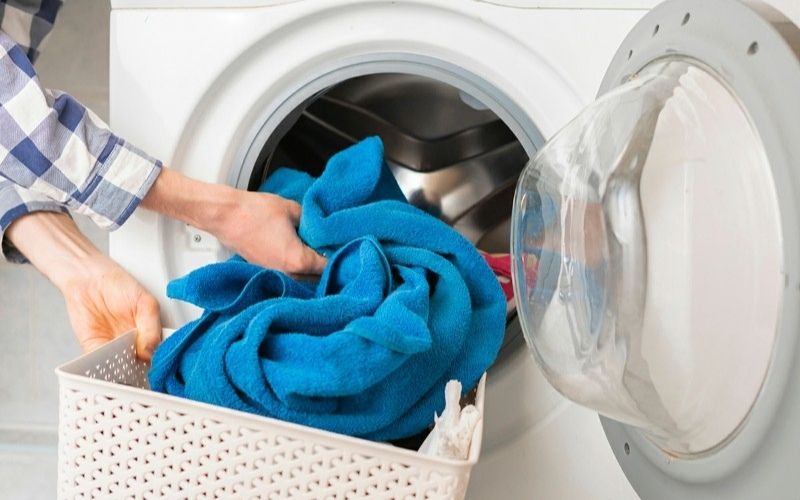 Improper care and storage can lead to pilling on bedding.
Improper care and storage can lead to pilling on bedding.
Different fabric materials require different care routines. If users are unaware of the specific considerations for washing, drying, and storing their bedding, it can easily lead to pilling. For example, certain fabrics may require specific water temperatures or drying methods to prevent damage and pilling.
2. Simple Tips to Deal with Pilling on Bedding
Choose Appropriate Washing, Ironing, and Drying Settings
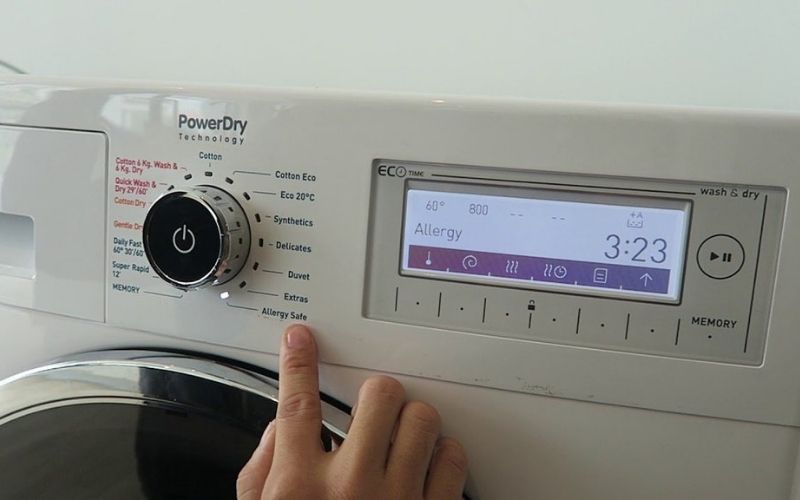 Choose gentle washing and drying methods to prevent pilling.
Choose gentle washing and drying methods to prevent pilling.
To avoid color bleeding and fabric tangling, wash your bedding separately and only with other items made of similar fabrics. Use a gentle cycle, cold water, and a fabric softener to prevent the fibers from becoming overly agitated and tangled during the washing process.
Hand washing can also help minimize pilling. Additionally, it is advisable to avoid machine drying, especially for linen or silk bedding, as the heat can cause the fibers to break, resulting in pilling, a rough texture, and damage to the fabric.
Trim Pills
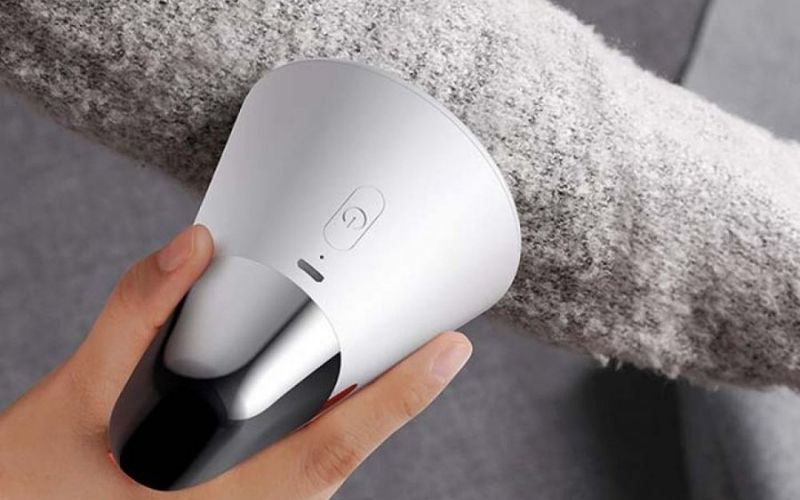 Use a fabric shaver to trim pills from bedding.
Use a fabric shaver to trim pills from bedding.
To prevent excessive pilling, promptly remove any small balls of fluff as soon as you notice them. However, avoid pulling them off with your hands or using a lint roller, as this can damage the surrounding fibers. Instead, carefully cut them off with scissors if you’re dexterous enough, or invest in a fabric shaver designed for this purpose.
Choose Reputable Bedding Brands
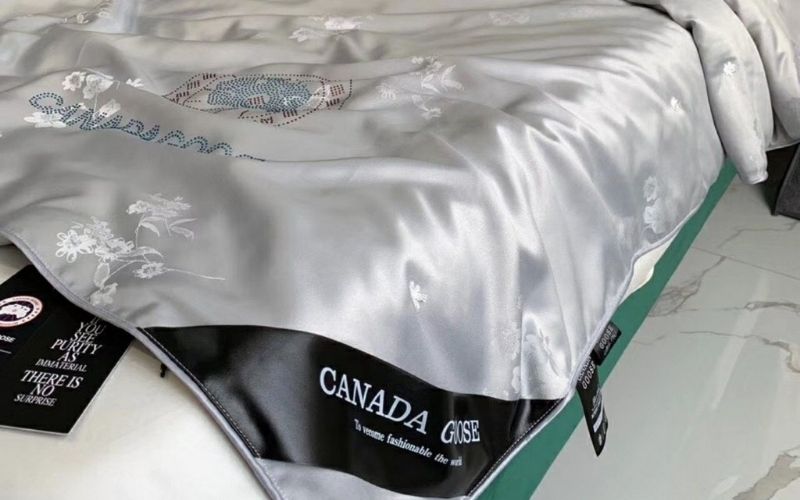 Choose bedding from reputable brands for better quality.
Choose bedding from reputable brands for better quality.
Reputable bedding brands, such as Canada, Amando, and Everon, offer high-quality fabrics, extended warranties, and comprehensive usage and care instructions. These brands provide peace of mind regarding the durability and longevity of your bedding, ensuring a comfortable and pleasant sleeping experience.
3. How to Choose Bedding That’s Less Prone to Pilling
As mentioned earlier, the choice of bedding fabric significantly impacts the occurrence of pilling and the quality of your sleep. To minimize this annoying issue, consider the following tips when selecting new bedding:
Choose 100% Cotton Fabric
 100% cotton fabric is a durable and breathable option for bedding.
100% cotton fabric is a durable and breathable option for bedding.
Although 100% cotton fabric tends to wrinkle when washed and may feel slightly coarse, it is one of the most durable and robust options. Additionally, its breathability makes it ideal for wicking away sweat and moisture. You can mitigate the wrinkling and coarse feel by paying attention to water temperature and choosing the right washing settings.
Opt for Cotton Satin
 Cotton satin is a luxurious and durable fabric for bedding.
Cotton satin is a luxurious and durable fabric for bedding.
Cotton satin is a premium imported fabric woven from natural cotton fibers. It has twice the thread count of regular cotton, resulting in a denser and smoother fabric. It is free from nylon or any other impurities, making it safe for those with sensitive skin. Cotton satin is also known for its softness, breathability, and resistance to fading and pilling.
Choose Silk Fabric
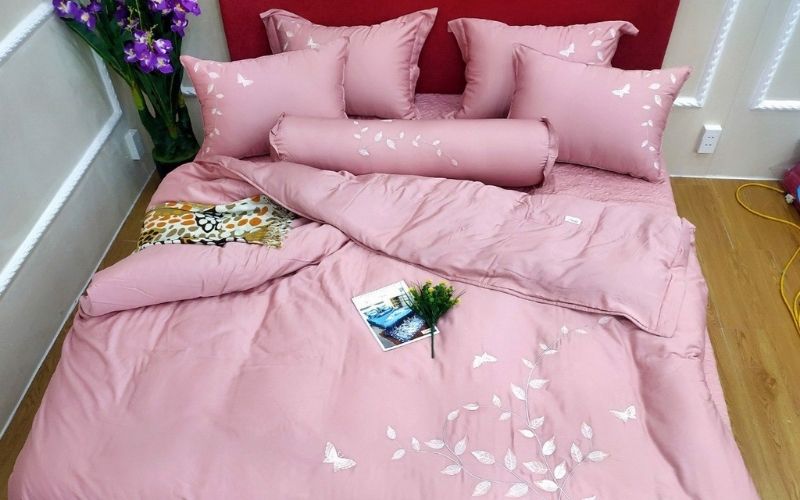 Silk fabric adds a touch of luxury and elegance to your bedding.
Silk fabric adds a touch of luxury and elegance to your bedding.
Natural silk fabric, woven from silk worm fibers, exudes elegance and sophistication. It is highly absorbent, excellent at regulating temperature, and resistant to pilling and clumping during washing and ironing, making it suitable for year-round use.
However, silk fabric should be kept away from direct sunlight, as the heat can weaken the silk fibers and cause color fading. Additionally, prolonged soaking in water can lead to wrinkling, abrasion, and color loss due to its low elasticity.
These simple tips can help you effectively deal with pilling on your bedding and improve your sleep quality. Taking care of your bedding will also contribute to maintaining the health and well-being of you and your family members.
Discover Unusual Ironing Techniques to Improve the Appearance of Clothing
If you’re looking to achieve a pristine, wrinkle-free appearance to your clothes, then ironing is a must-have in any household. But are you aware of the different techniques and tricks out there that can help you save energy, maintain the life of your ironing board, and do a better job ironing? In this article, we’ll be unlocking the secrets to some of the best ironing hacks that you won’t find anywhere else.



























